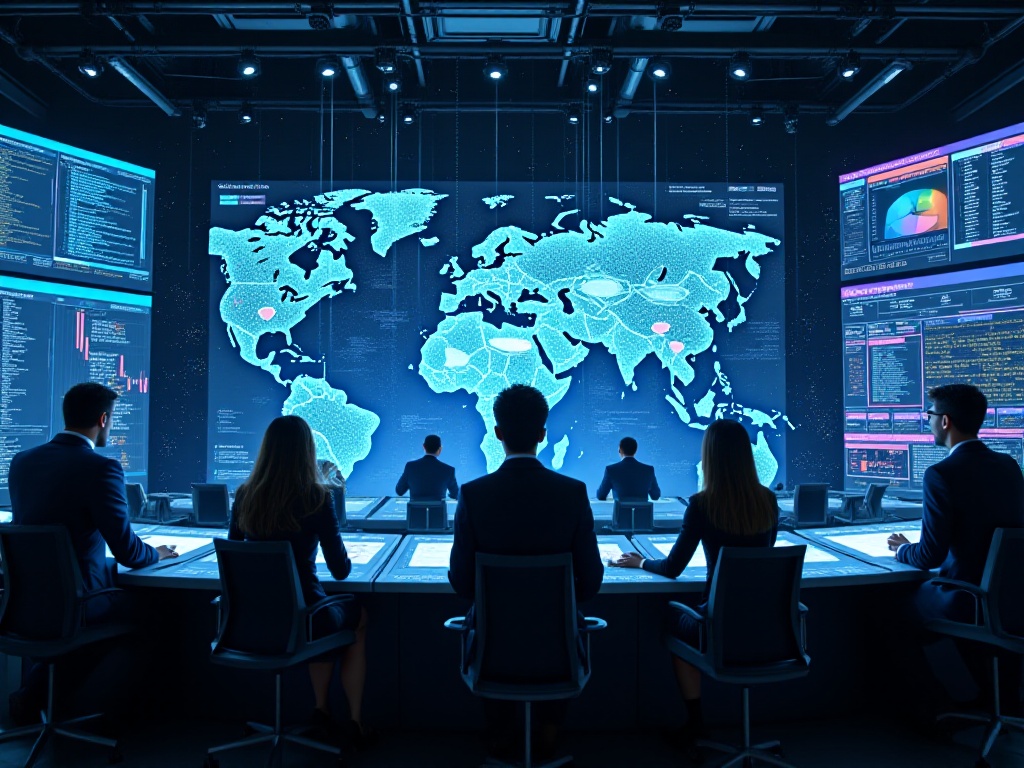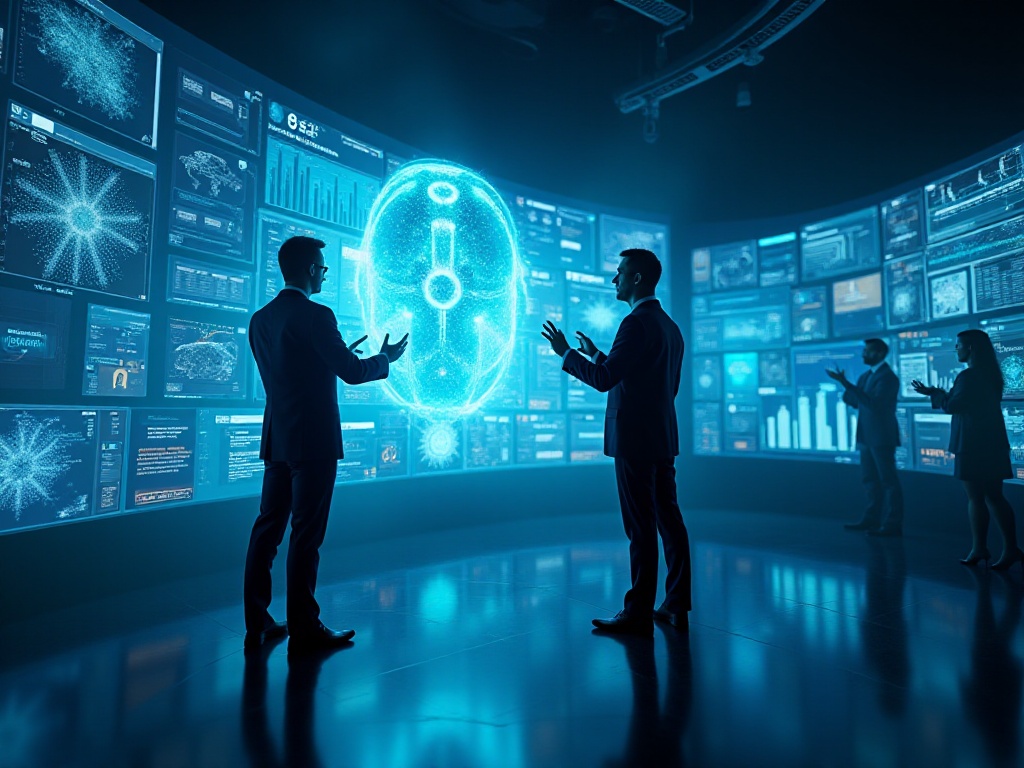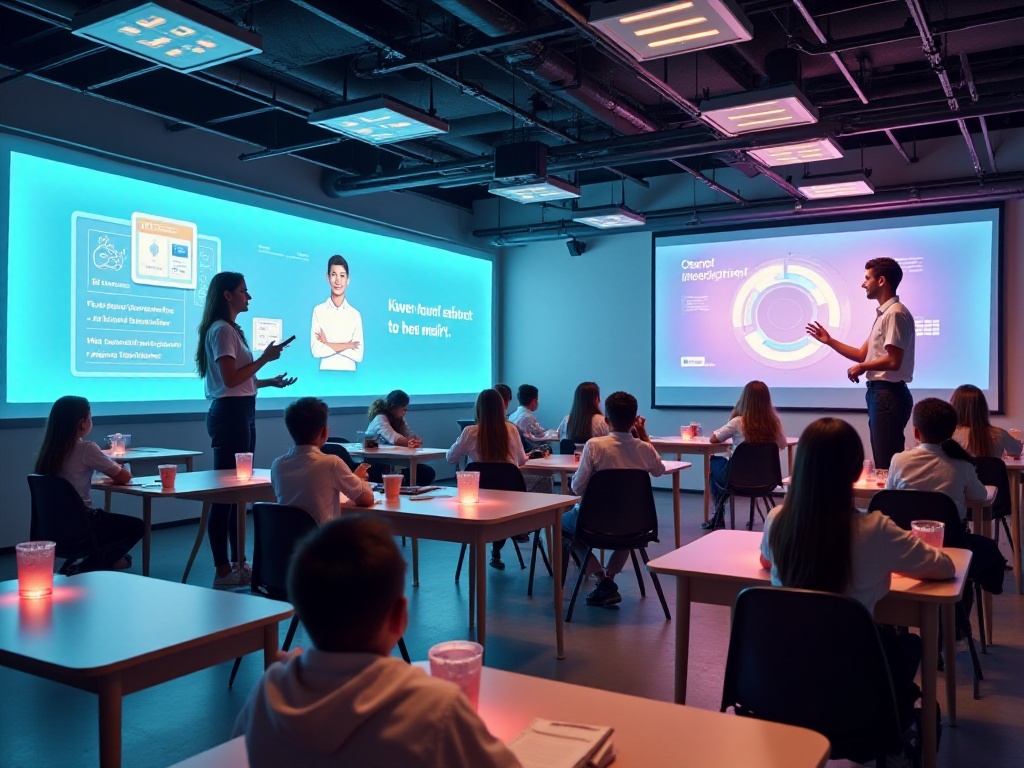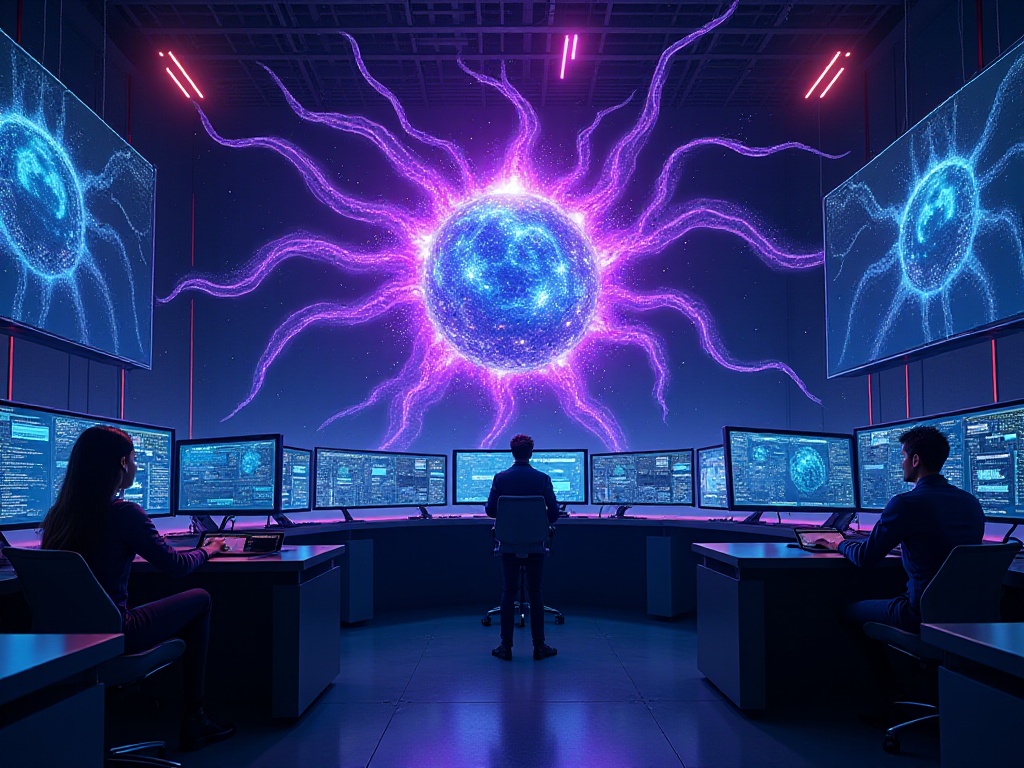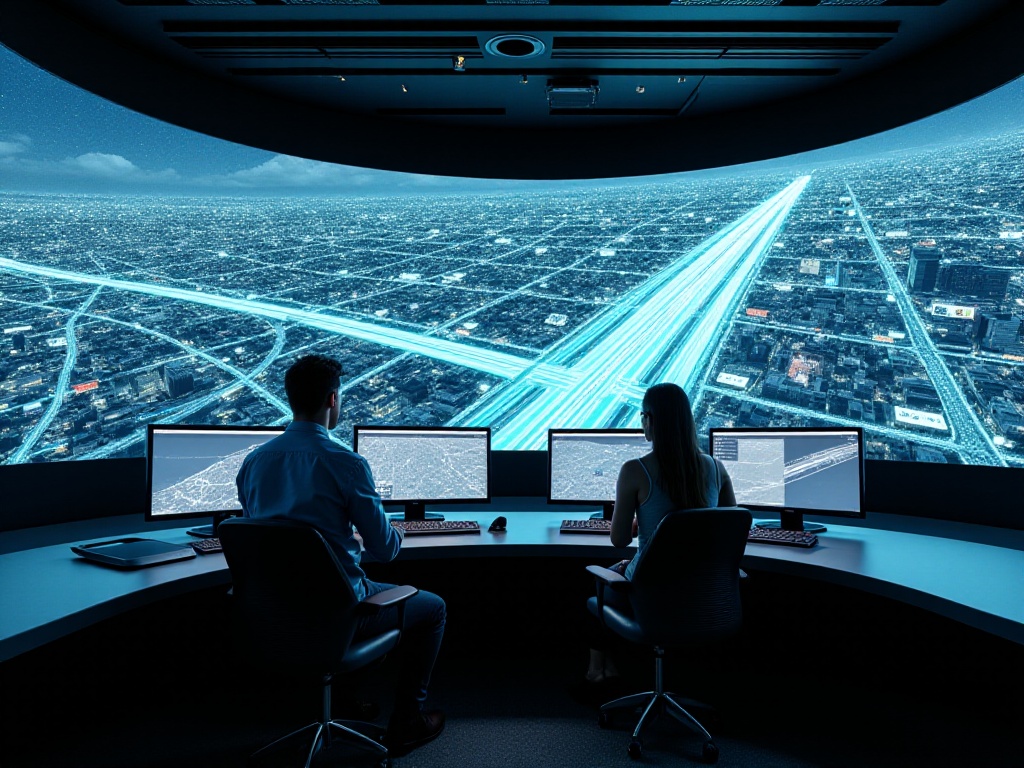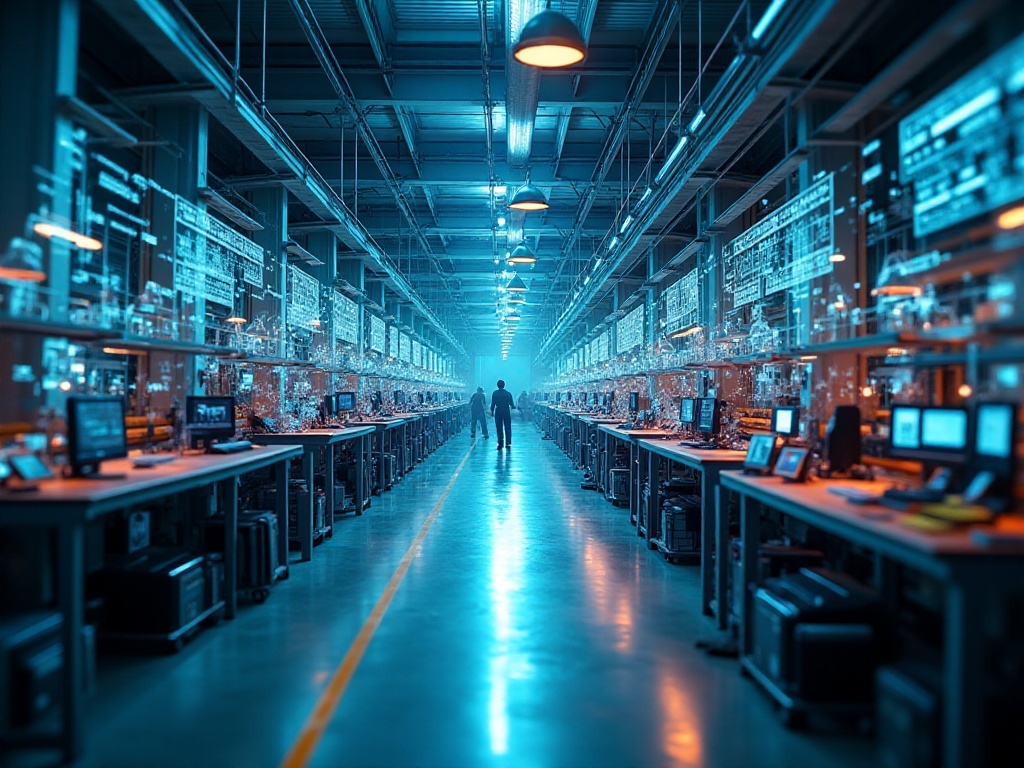Introduction
Recently, I've noticed more and more friends starting to use AI assistants to improve their work efficiency. Have you noticed that from data analysts to customer service representatives, from doctors to salespeople, everyone is quietly integrating AI into their daily work? Today, let's discuss how AI is actually changing our way of working.
To be honest, when I first heard about AI assistants, I thought it was just hype. Until one day, I saw my roommate still typing away at her computer late at night. When I curiously peeked over, I discovered she was using an AI assistant to help optimize her work report. That's when I realized that AI had already silently slipped into our working lives.
Data Analysis
Remember that head-scratching feeling when doing data analysis before? Now with AI, everything is different.
Take my friend Xiao Wang who works in finance - their company used to spend several days predicting customer churn, but now with the AI prediction system, they just input historical data and get fairly accurate predictions in minutes. What's more impressive is that the system can tell you the specific reasons for each customer's churn, making their retention work particularly targeted.
Xiao Wang shared with me how they use AI for customer analysis. For example, the system automatically analyzes data like customer transaction frequency, amount changes, service complaint records, and then gives a customer satisfaction score. If it detects a customer's score starting to decline, the system automatically sends an alert and provides a detailed analysis report. This kind of analysis would have taken several data analysts working overtime for days in the past.
More amazingly, AI can not only analyze what has happened but also predict future trends. Once, the system predicted that customers of a certain age group might be particularly interested in a newly launched financial product. The marketing department did precise marketing based on this prediction, and the sales of this product directly exceeded expectations by 30%.
The changes in online trading are even more revolutionary. I remember visiting a securities company last year where their AI trading system could analyze thousands of trading indicators in real-time and automatically adjust investment portfolios based on each client's risk preference. This kind of personalized service used to be available only to top wealthy clients, but now ordinary investors can access it too.
This AI trading system is like having a professional investment advisor for each investor. It automatically adjusts investment strategies based on real-time market changes. For instance, if it detects major positive news in an industry, the system immediately analyzes how this news affects related stocks, then decides whether to adjust clients' investment portfolios based on their risk tolerance.
Most impressively, the system can learn each client's investment habits. If it finds a client particularly likes certain types of stocks, the system will prioritize investment opportunities in these stocks. Moreover, it gives more suitable investment advice based on factors like the client's age, income, and family situation.
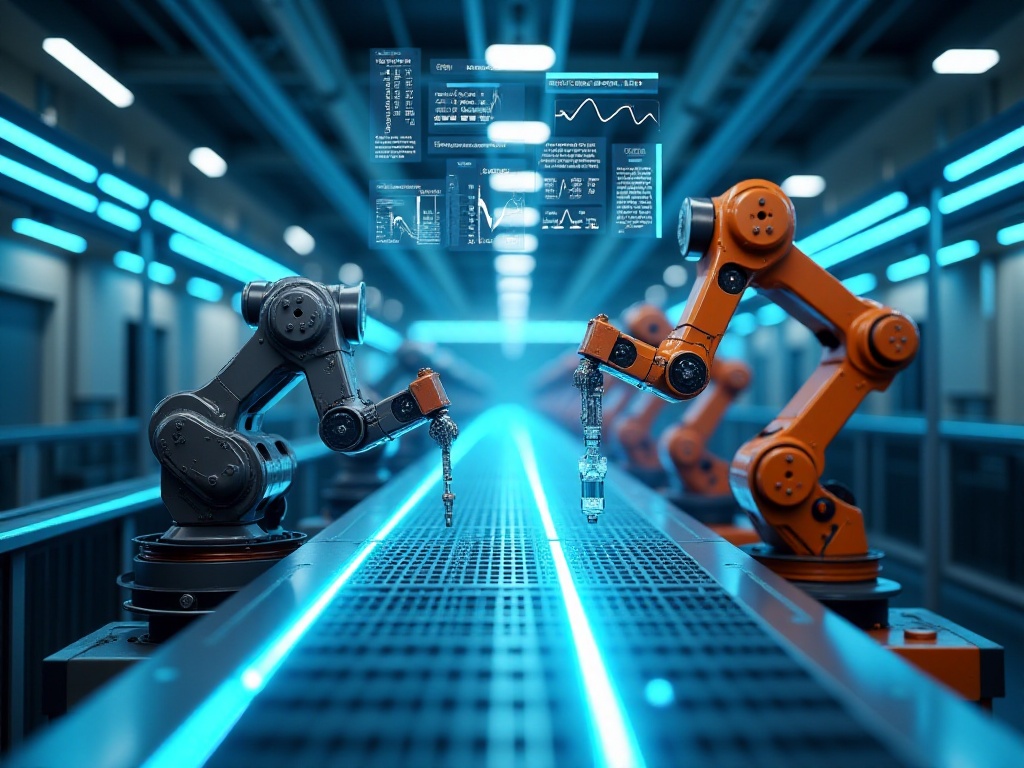
Customer Service
Speaking of customer service, you must have experienced wanting to ask questions late at night only to find customer service off duty? Now that's solved - intelligent customer service is available 24/7, and becoming more and more like real people.
The other day I was shopping on an e-commerce platform and needed to consult customer service about an issue. The AI customer service not only instantly answered my question but could also give very precise product recommendations based on my shopping history. What surprised me most was that it even remembered my previous usage feedback - this kind of continuous service experience is really great.
For example, I wanted to buy a coffee machine a few days ago but had no idea how to choose. The AI customer service directly recommended several products most suitable for me based on my consumption habits and lifestyle. It told me: "I see you often buy instant coffee but have recently started purchasing coffee beans, suggesting you're seeking better coffee quality. Considering you live in a small apartment, I recommend this compact but fully-featured semi-automatic coffee machine." This kind of thoughtful service made me feel truly valued.
Personalized recommendations on e-commerce platforms are getting smarter too. Last month when I looked at a pair of sneakers on a platform, the system not only recommended similar shoes but also suggested matching sportswear and equipment based on my exercise habits - it was like having a personal shopping consultant.
Not just e-commerce platforms, but traditional customer service centers are also experiencing revolutionary changes. I have a friend who works in the customer service department of an insurance company, and they now use AI to handle most routine inquiries. The AI system can understand customer questions and provide accurate answers. When encountering complex issues, AI automatically transfers customers to human customer service while organizing previous conversation records and key information, so human agents can immediately understand the situation without asking customers to repeat their problems.
More amazingly, AI customer service can recognize customer emotions. If it detects a customer isn't in a good mood, the system automatically adjusts its response tone to communicate more gently. Sometimes it even proactively offers additional help, like relevant discount information or solutions - this kind of thoughtful service really touches people.

Medical Applications
AI applications in the medical field are truly touching. Last year when one of my relatives was diagnosed with cancer, thanks to the hospital's AI-assisted diagnostic system, they not only discovered the problem early but also helped doctors develop a personalized treatment plan.
Specifically, the AI system analyzes patient examination data, including imaging tests and blood tests, then compares this data with numerous historical cases. Through this method, the system can find the most similar cases and reference their treatment outcomes to provide treatment suggestions to doctors.
My relative's attending physician said the AI system's suggestions were particularly valuable. For example, when choosing chemotherapy plans, the system would predict possible side effects of different plans based on the patient's various indicators, allowing doctors to choose the most suitable treatment plan for the patient.
Data shows that hospitals using AI-assisted diagnosis have increased early cancer detection rates by about 40% and reduced misdiagnosis rates by about 30%. Behind these cold numbers are warm stories of countless families spared from the suffering of illness.
Now many hospitals are also using AI to optimize daily nursing work. From automatically reminding patients to take medicine on time, to intelligently adjusting examination schedules, to predicting possible complications, AI acts like a tireless assistant, greatly improving the quality of medical services.
For example, the hospital's AI system automatically generates personalized care plans based on each patient's condition. If patients need regular follow-ups, the system sends reminders at appropriate times; if it detects abnormal indicators in patients, the system immediately notifies medical staff. This comprehensive care gives patients unprecedented sense of security.
In medical image diagnosis, AI's performance is even more amazing. I've heard that some hospitals use AI to assist in reading scans - the system can analyze hundreds of medical images in seconds and accurately mark suspicious areas. This not only improves diagnostic efficiency but also helps doctors spot details that might be easily missed by human eyes.
Telemedicine has also become more reliable because of AI. Now many people can get initial health consultations through their phones - AI makes preliminary judgments based on described symptoms and suggests hospital visits when necessary. This service is especially helpful for residents in remote areas, allowing them to get basic medical advice without traveling far.

Process Optimization
Speaking of work efficiency, we must mention process automation. Now many companies' finance departments are using AI to handle invoices and reimbursements - work that used to take a whole day can now be done in minutes.
I have a friend Xiao Li who works in finance at a large company, and she told me their work has become much easier now. Previously, she had to spend several days at the end of each month checking various documents, but now with the AI system, they just need to scan the documents in, and the system automatically recognizes information, categorizes and files it, and can automatically check for anomalies. If it finds problems, the system immediately marks them for finance staff to focus on.
This automation not only improves efficiency but also greatly reduces the probability of errors. Xiao Li said that since using the AI system, their department's work error rate has decreased by over 90%. Now they have more time to do strategic work like financial analysis and budget planning.
In the security field, AI applications are also particularly widespread. After a certain bank adopted an AI anti-fraud system, the detection rate of fraud cases increased by 60%, and 95% of fraudulent activities could be discovered immediately when they occurred.
This system is really amazing - it can monitor all transaction behaviors in real-time, and if it detects suspicious transaction patterns, it immediately sends an alert. For example, if an account suddenly has a large number of abnormal transfers or frequently changing transaction locations, the system will automatically freeze the account to prevent theft.
Robot applications in the industrial field are even more eye-opening. I recently visited a smart factory where robots not only could independently complete assembly work but also conduct real-time quality inspection through the AI system, improving the yield rate by 35% and production efficiency by 50%.
In this factory, robots seem to have their own brains. They can automatically adjust work processes based on production tasks, and if they detect quality problems with a product, they immediately stop production and notify management personnel. More impressively, these robots can collaborate with each other, automatically adjusting work rhythms to ensure smooth production line operation.
I paid special attention to their quality inspection system. This system uses cameras to scan each product from all angles and can detect tiny defects that are difficult to spot with the naked eye. Moreover, the system records production process data for each product, so if quality issues are found later, they can quickly trace back to specific production steps.

Looking to the Future
After seeing these application scenarios, do you also feel the changes brought by AI? But note that AI is not meant to replace humans, but to assist us in completing work. The future work scenario is likely to be a human-machine collaboration model, where AI handles repetitive work while we humans focus on more creative tasks.
I believe that in the future we need to learn how to cooperate with AI and leverage our respective advantages. AI can help us handle large amounts of data analysis work and execute standardized processes, while we humans can focus on work requiring creativity and emotional understanding. For example, in customer service, AI can handle daily inquiries while human customer service handles situations requiring empathy and complex judgment.
At the same time, we should actively learn new skills and understand how to better use AI tools. This not only can improve our work efficiency but also help us maintain competitiveness in future workplaces. Perhaps positions like "AI Collaboration Specialist" will soon become hot jobs.
Finally, I want to say that while AI technology development has indeed brought us many conveniences, it is ultimately a tool. The key is how we use it and how we make it better serve human needs. Future work methods will certainly become more intelligent, but human creativity and emotions will always be irreplaceable.
Have you started using AI in your work? Welcome to share your experiences in the comments. Let's discuss how to better utilize AI, improve work efficiency, and create greater value.


